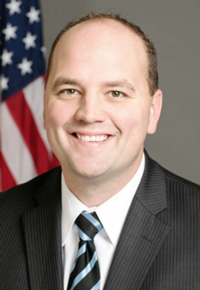 I have done my share of attending school board meetings over my career in journalism, but have never witnessed anything quite like the public hearing held Wednesday night by the Hamilton Southeastern (HSE) School Board. I counted 38 people walking up to a microphone before the board and those watching on a video live stream.
I have done my share of attending school board meetings over my career in journalism, but have never witnessed anything quite like the public hearing held Wednesday night by the Hamilton Southeastern (HSE) School Board. I counted 38 people walking up to a microphone before the board and those watching on a video live stream.
Speaking before a school board is stressful enough. Add in the fact that you are a student in the school system. In addition, you have been bullied because of being transgender or gay. Yet, somehow, you find the courage to publicly tell your story before the elected board and a mass of humanity watching you.
The board room filled up quickly once the doors opened, and overflow rooms were available to watch the live video as the meeting moved along. The number of people wanting to view the meeting was amazing.
This all happened because the HSE Board was considering final approval of a revised nondiscrimination policy. There were several versions of the language, but the wording released just a few hours before the meeting appeared to satisfy the group HSEqual, which had been arguing for more inclusive language in the policy, including naming gender identity as a group covered by the policy and removing language that tied the policy too closely with federal and state law.
Board member Amanda Shera proposed a “conscience clause” in the policy, which would allow an exception to the policy for religious reasons. That measure failed on a 5-2 vote, with Shera and Sylvia Shepler voting yes.
Then the board passed the new policy proposal 5-2, with Mike Bottorff, Julie Chambers, Janet Pritchett, Brad Boyer and Michelle Fullhart voting yes; voting no were Amanda Shera and Sylvia Shepler.

Fadness
After the vote, Fishers Mayor Scott Fadness issued a statement praising the school board for its action on the nondiscrimination policy:
“I commend the action of the school board tonight to adopt a new non-discriminatory policy that ensures all students have protections against discrimination and demonstrates to all students that they have the support of their school community. Thank you to the board members who worked on the new non-discriminatory language and who listened to the students, teachers and public.”
